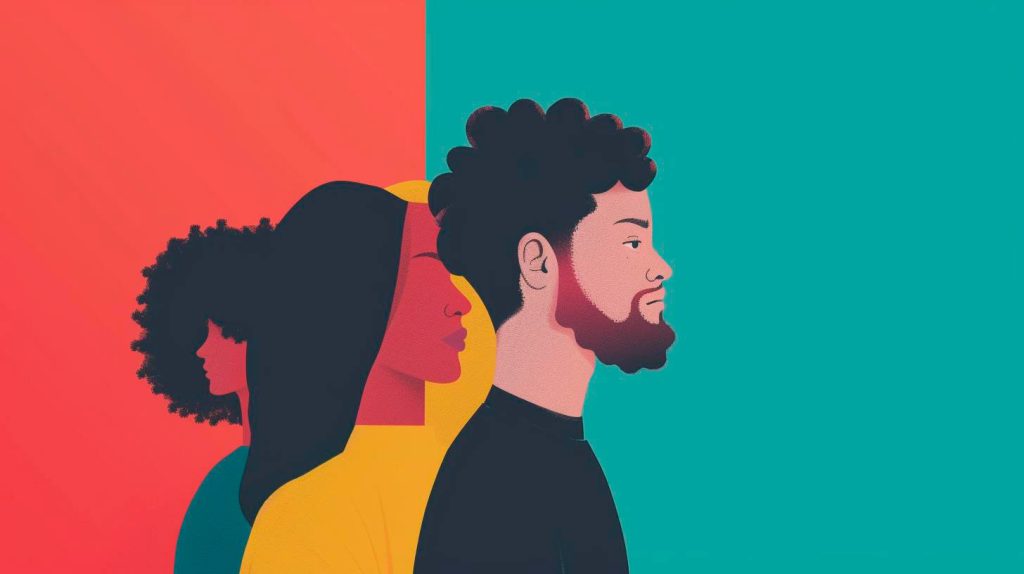
Misunderstandings About the Impact of Judgments
1. Judgments Do Not Automatically Result in Financial Ruin
One of the biggest misunderstandings about legal judgments is that they automatically lead to financial ruin. While it is true that failing to satisfy a judgment can have serious consequences, such as asset seizure or wage garnishment, there are often options available for individuals and businesses to negotiate payment terms or seek legal protection.
According to a survey conducted by the American Bar Association, only 17% of judgments result in full payment within a year of being issued. This means that the majority of judgments do not lead to immediate financial devastation, and there are ways to navigate the legal system to protect your assets and interests.
2. Judgments Can Impact Credit Scores
Another common misconception is that legal judgments do not affect credit scores. In reality, judgments can have a significant impact on one’s credit report and score, making it more difficult to obtain loans or credit in the future.
According to a report by the Consumer Financial Protection Bureau, judgments are considered one of the most serious derogatory items that can appear on a credit report, along with bankruptcies and foreclosures. This highlights the importance of addressing legal judgments in a timely manner to prevent long-term damage to one’s creditworthiness.
3. Judgments Can be Appealed or Settled
One key aspect that many individuals overlook is that judgments can be appealed or settled through negotiation. By working with a qualified attorney, individuals and businesses can explore options for appealing a judgment based on legal errors or settling the case through a structured payment plan.
A study by the National Consumer Law Center found that over 70% of judgments are settled out of court, demonstrating that there are alternatives to facing the full consequences of a legal judgment. By seeking legal guidance early on, individuals can take proactive steps to protect their rights and assets.
4. Legal Assistance is Essential in Managing Judgments
Lastly, it is crucial to recognize the value of legal assistance in managing judgments. Dealing with legal matters can be complex and overwhelming, and having a knowledgeable attorney by your side can make a significant difference in the outcome of a case.
According to data from the American Bar Association, individuals who seek legal representation in civil cases are more likely to achieve favorable outcomes compared to those who represent themselves. This underscores the importance of investing in professional legal services to navigate the complexities of the legal system effectively.
Legal judgments can have a lasting impact on individuals and businesses, but it is essential to separate fact from fiction when it comes to understanding their implications. By debunking common misunderstandings and seeking timely legal assistance, individuals can protect their rights and assets in the face of legal challenges.
- Addressing misunderstandings about legal judgments
- Exploring the impact of judgments on credit scores
- Highlighting options for appealing or settling judgments
- Emphasizing the importance of legal assistance in managing judgments
Social Consequences of Stereotyping and Prejudice
Impact on Individuals
Stereotyping and prejudice can have a profound impact on individuals, causing emotional distress, low self-esteem, and a sense of alienation. Studies have shown that individuals who are subjected to stereotypes often experience increased levels of anxiety and depression, leading to negative mental health outcomes.
Furthermore, individuals who are targeted by prejudice may face barriers in accessing education, employment, and healthcare services. This can result in economic inequality and limited opportunities for social mobility, perpetuating a cycle of poverty and oppression.
Legal Implications
From a legal standpoint, stereotyping and prejudice can lead to discrimination and violation of civil rights. In the United States, laws such as the Civil Rights Act of 1964 and the Americans with Disabilities Act prohibit discrimination on the basis of race, gender, age, disability, and other protected characteristics.
Victims of discrimination can seek legal recourse by filing complaints with the Equal Employment Opportunity Commission (EEOC) or pursuing civil lawsuits. Legal action can result in monetary damages, injunctions, and other remedies to combat discrimination and hold accountable those responsible for perpetuating harmful stereotypes.
Community Impact
Stereotyping and prejudice not only harm individuals but also have far-reaching consequences for communities as a whole. When certain groups are marginalized and discriminated against, social cohesion is disrupted, leading to increased tensions and conflicts within society.
Research has shown that communities plagued by stereotypes and prejudices are more likely to experience social unrest, crime, and violence. By combating stereotypes and promoting tolerance and inclusivity, communities can foster a sense of unity and belonging among diverse populations.
Legal Strategies to Combat Stereotyping and Prejudice
As legal professionals, it is important to be proactive in addressing stereotypes and prejudices within society. This can be achieved through advocacy, education, and legal action to promote equality and justice for all individuals.
- Advocacy: Lawyers can advocate for policies and laws that protect marginalized groups and prevent discrimination based on stereotypes. By lobbying for legislative changes and raising awareness about the harmful effects of prejudice, legal professionals can create a more equitable and inclusive society.
- Education: Legal professionals can also engage in educational efforts to combat stereotypes and promote diversity and inclusion. By conducting training sessions, workshops, and awareness campaigns, lawyers can empower individuals and organizations to challenge stereotypes and foster a culture of acceptance and respect.
- Legal Action: In cases where stereotypes and prejudices result in discrimination or civil rights violations, legal professionals can take legal action to hold accountable those responsible. By representing victims of discrimination and seeking justice through the legal system, lawyers can send a powerful message that intolerance and bigotry will not be tolerated.
Strategies for Overcoming Judgmental Thinking
Let’s dive into some tips and techniques that can help you overcome judgmental thinking in your professional life.
Understanding Judgmental Thinking
Before we discuss strategies for overcoming judgmental thinking, it is important to understand what exactly it is. Judgmental thinking involves making assumptions or forming opinions about someone or something without all the facts. This can lead to biased decisions and unfair treatment of others. As lawyers, it is crucial for us to be objective and impartial in our assessments.
The Impact of Judgmental Thinking
When we engage in judgmental thinking, it can have a negative impact on our relationships with clients, colleagues, and even judges. Making snap judgments can cloud our judgment and prevent us from seeing the full picture. This can lead to misunderstandings, conflicts, and even legal repercussions. It is essential for lawyers to be able to set aside their biases and approach each situation with clarity and objectivity.
Strategies for Overcoming Judgmental Thinking
- Seek Different Perspectives: To avoid falling into the trap of judgmental thinking, seek out different perspectives. Consult with colleagues, mentors, or even clients to get a more well-rounded view of the situation. This can help you make more informed decisions based on facts rather than assumptions.
- Practice Mindfulness: Mindfulness techniques can help you become more aware of your thoughts and actions. By practicing mindfulness, you can catch yourself before making a judgment and take a step back to assess the situation more objectively. This can help you avoid hasty decisions and improve your overall judgment.
The Benefits of Overcoming Judgmental Thinking
By overcoming judgmental thinking, lawyers can benefit in several ways. First and foremost, it can improve the quality of their work by allowing them to make more informed and fair decisions. This can lead to better outcomes for clients and help build trust and credibility in the legal profession.
Additionally, overcoming judgmental thinking can improve relationships with colleagues and clients. By showing empathy and understanding, lawyers can build stronger connections and avoid conflicts that can arise from biased judgments. This can lead to a more positive work environment and better collaboration among team members.
Overcoming judgmental thinking is essential for lawyers who want to excel in their profession. By practicing empathy, challenging assumptions, seeking different perspectives, practicing mindfulness, and focusing on facts, lawyers can improve their judgment and make better decisions. This can lead to better outcomes for clients, stronger relationships with colleagues, and a more successful legal career.
Thank you for reading our blog article on strategies for overcoming judgmental thinking. Stay tuned for more valuable insights and tips on legal issues in our future posts.
The Fallacy of Perfect Judgment
Understanding the Imperfection of Legal System
The legal system is not infallible, and perfect judgment is nearly impossible to attain. Judges and juries are humans, and like all humans, they are prone to biases, errors, and limitations. This means that even the most skilled lawyer cannot guarantee a perfect judgment in a case.
According to a study conducted by the American Bar Association, only 23% of civil cases are decided in favor of the plaintiff, highlighting the unpredictability of legal outcomes. This statistic underscores the importance of managing expectations and understanding that legal battles are inherently uncertain.
Benefits of Realistic Expectations
Having realistic expectations about legal outcomes can benefit clients in several ways. Firstly, it allows them to focus on the bigger picture and make informed decisions about their legal strategies. By recognizing the imperfections of the legal system, clients can avoid the disappointment and frustration that often comes with unrealistic expectations.
Moreover, understanding the fallacy of perfect judgment can help clients to be more open to alternative dispute resolution methods, such as mediation and arbitration. These out-of-court solutions can offer more control over the outcome of a case and are often faster and less costly than traditional litigation.
Navigating Uncertainty with Legal Experts
While perfect judgment may be unattainable, skilled legal experts can help clients navigate the uncertainties of the legal system. By leveraging their knowledge, experience, and resources, lawyers can craft effective legal strategies that increase the chances of a favorable outcome.
Furthermore, lawyers can provide clients with a realistic assessment of their case, including the potential risks and rewards. This transparency and guidance can empower clients to make informed decisions and manage their expectations throughout the legal process.













But can’t I just file for bankruptcy to get rid of a judgment?
If you fail to appear in court, the judgment may be entered against you by default, meaning the other party automatically wins.
Ignoring a judgment is never a good idea. It’s best to work with the creditor to come up with a payment plan or explore other options like bankruptcy.
No way, dude! Ignoring a judgment can actually lead to serious consequences, like wage garnishment or a lien on your property.
So, if I can’t pay a judgment, should I just ignore it and hope it goes away?
Yo, I heard that if you ignore a judgment, it just goes away. Is that true?
Even if you don’t have assets now, creditors can still pursue collection efforts in the future when your financial situation improves. It’s important to address judgments proactively.
Someone told me that judgments expire after a certain amount of time. Is that true?
Bankruptcy can help with some types of judgments, but not all. It’s important to consult with a bankruptcy attorney to understand your options.
But what if I don’t have any assets for creditors to go after?
Wait, so what happens if I just don’t show up to court when a judgment is against me?
While judgments can have expiration dates, they can often be renewed by the court if the creditor takes action to extend them.